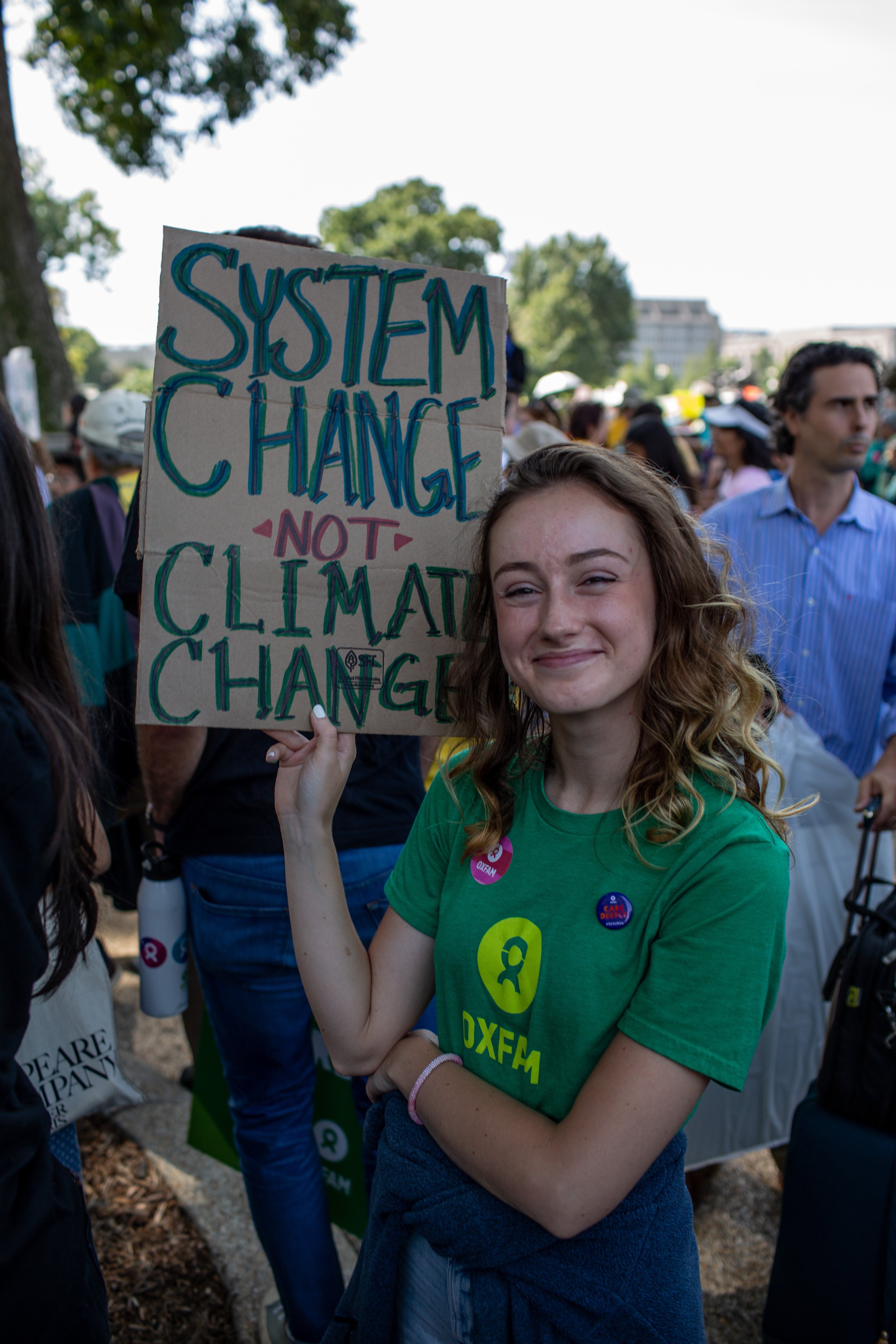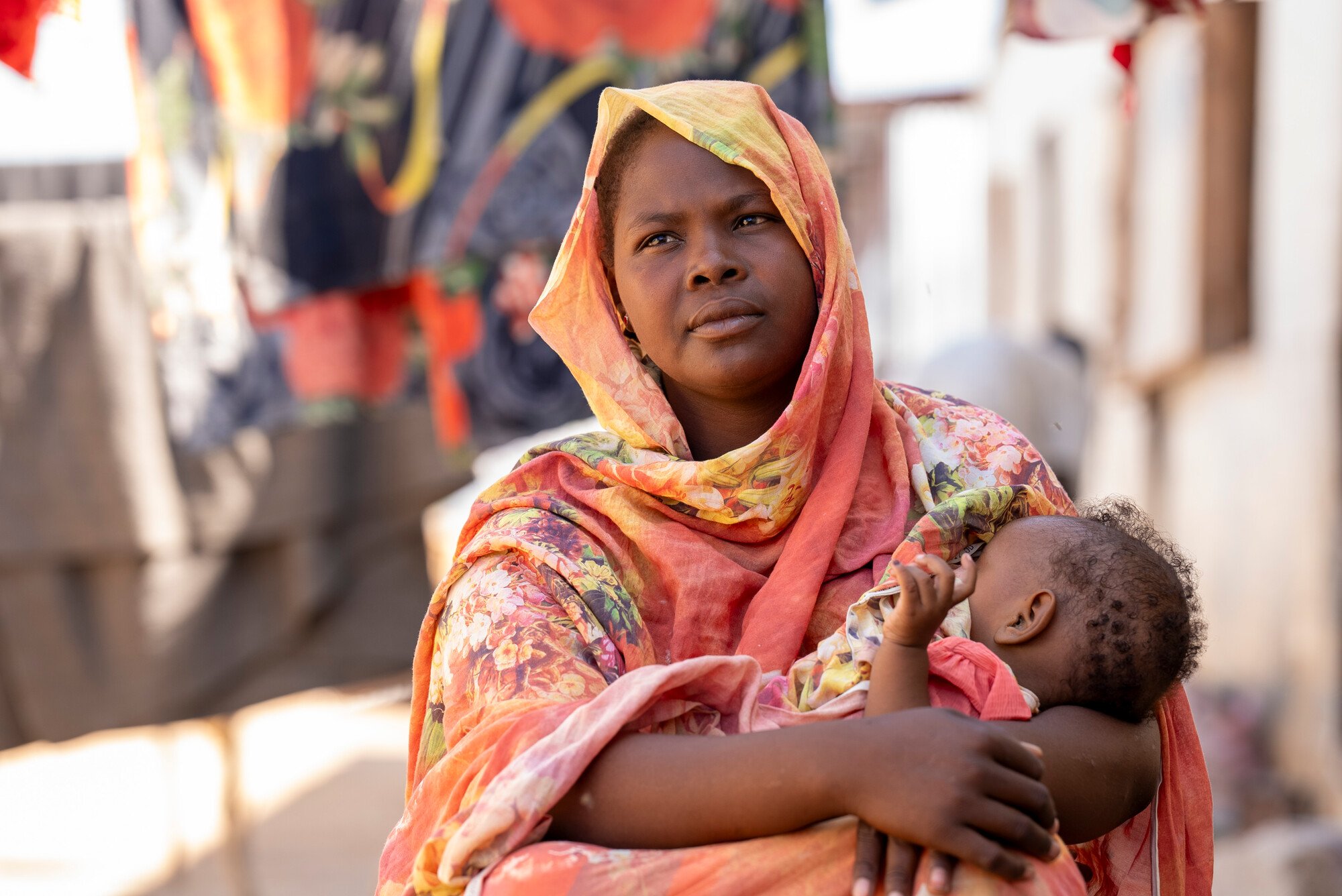“If we’re not brave now, there’s not going to be a world to be brave in later.”
College junior Danie Stewart is done with the climate skeptics.
As president of the Oxfam Club at the University of Maryland at College Park, she is one of many young people leading the movement for climate action. Danie has helped to organize campus wide meet ups with the Fridays for Future’s Climate Strikes, and she wants to show more students the connection between climate and other critical global issues—from forced migration to gender equality to the fight to end hunger.
“You can’t stop the injustice of poverty without addressing climate change,” she says.
We caught up with Danie to talk about her life and work on campus and why young people are making climate action a priority—now.
Tell us a little bit about yourself.
I grew up in Maryland. My mom’s side of the family is from Appalachia, and she grew up in a really small town in West Virginia. She followed in her father’s footsteps by joining union organizing and now works for SEIU (Service Employees International Union) so a lot of my drive for activism and change-making comes from that. I’ve always been interested in how we organize and mobilize for things that are important to us. And it’s exciting to meet people on campus and through Oxfam with family members that inspired them.
What does women’s history month look like to you by 2030? What have we achieved by then to help reach gender equality?
This starts at the most basic level of normalizing that ALL children should be attending school. We know that in some places in the world, girls are turned away from schools and not told that they are capable of learning the same way boys are. We know that in times of economic hardship, families will withdraw their daughters from school so that they can help manage the household or provide an income. We also know that girls are kept from schooling when they have their period, an extremely basic and natural biological function of a woman’s body.
But we also know that one of the world’s biggest issues—climate change—needs all the brightest minds researching, advocating, and campaigning for it to be stopped. Barring girls and women from receiving their education throws away half of the world’s thinkers, scientists, politicians, writers, and leaders. Suppressing girls’ access to education has never done anything but limit humanity’s progress and growth towards a better future. So for the sake of those born tomorrow, educate every girl alive today.
What does it mean to you that young people are leading this fight for climate action?
I think it’s really significant for a couple of reasons. Maybe I’m saying this because I’m 20 years old, but I think it’s difficult for older folks to be comfortable seeing the ramifications of what has been going on for so long. This is the world that people in their 20s have grown up in. We’ve been talking about it for our entire lifetimes. And now younger people feel like they are ready to point out those flaws even if it makes people uncomfortable. We’re not interested in keeping the status quo.
Our Earth is dying, and we need to stop that. You see that in the passion young people bring to the table. If we’re not brave now, there’s not going to be a world to be brave in later.

As a white woman, what do you see as your role in this fight?
I don’t think enough people are asking that. It’s something that has been on my mind these past two years—there are moments where I can speak up and there are moments where I need to make ways for other people to speak up. It’s hard because when you’re in certain leadership positions I want to facilitate good spaces for people of all different identities to be involved. It’s been a really good space for people who have not been typically given the opportunity to voice their experiences—for people of color to get the chance to speak up. And the amount of strength and power that comes out of self-reflection and discussion is important. We should be talking about race every day. We should be talking about gender every day.
Why do you think it’s so important that we end the injustice of poverty?
Poverty is so impactful in every type of injustice we have in the world and everything connects back to it. The issues of poverty are drastically driven by a very few people in the world who are extremely powerful and wealthy and our ability to influence them is going to be what helps make change happen. Refugees are at risk, women are faced with difficult decisions related to education, and migration is affected by climate change. It’s not going to be fixed by charity. These are huge challenges that create imbalance all over the world for so many people in violent and catastrophic ways, but what I like about what Oxfam does is think about productive ways to instill that change in creating programs, education, and pointing out the flaws. I don’t think you can do any work in the world without being an influencer—for injustice or against it.




